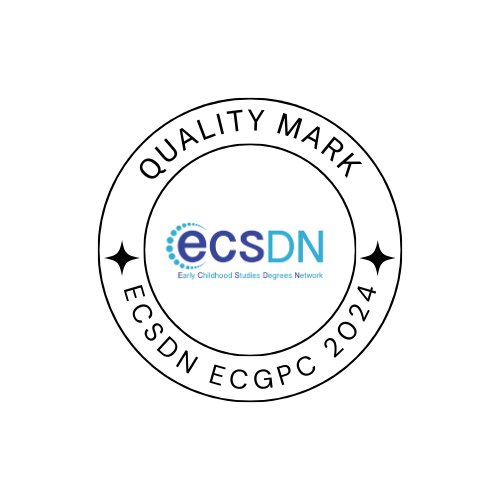
BA (Hons) Early Childhood Studies
Our holistic approach to the study of early childhood, mirrors the support we offer our students.
This is an exciting multi-disciplinary programme designed for those who wish to pursue a career working with children and/or their families.
You will study a range of different subjects throughout the programme such as; child development theory, sociological aspects of childhood, children’s health and wellbeing, safeguarding, early years education, play, research methods, effective leadership in the early years, working with children and families, childhoods across the globe and the digital age amongst other subjects.
The work placement element of this programme will provide you with valuable opportunities to develop your own skills in early years practice and contextualise the theories that you are learning in class. Work experience also increases your employability and helps you to make useful links within the early years sector.
A unique aspect of this course is its holistic approach which gives you the opportunity to consider and evaluate a range of different perspectives in relation to children and childhood, whilst developing your knowledge, experience and critical skills. You will feel welcomed and supported by an experienced team throughout your studies and enjoy the benefits of studying in a close nurturing community.
*Subject to re-validation– indicative content may change.
What is the Degree like?
Listen to the Course Director explain a little about how we teach, the structure of your degree, and how we approach your learning at each stage of the programme.
Developing graduate and postgraduate level education, training and research in the discipline of Early Childhood Studies.
Usual Entry Requirements
UCAS Tariff - 96 points
A level - CCC
Pearson BTEC Level 3 National Extended Diploma (first teaching from September 2016) - MMM
All applicants must undergo an extended interview process and demonstrate capacity for self-awareness, maturity and stability and be able to cope with the emotional demands of the course.
Those undertaking practice hours will be required to successfully complete a Data and Baring Service (DBS) check.
It is desirable that applicants have previously completed an introductory to counselling course and have used these skills in a helping capacity.
Applicants who do not meet the published entry requirements will be considered on an individual basis based upon prior learning and relevant experience.
Work Experience/Residential Requirements:
The mandatory work placement is in the second year of the degree. We will also support you to find relevant volunteer positions at any point during the programme to help you gain valuable experience if you are new to the early years sector or wish to develop your pre-existing experience.
Progression Opportunities
The Early Childhood Studies degree provides you with a range of career options working with children and families as well as the opportunity to progress to postgraduate qualifications in order to work in the education, health and social care sectors.
Many of our students’ progress onto Early Years or Primary Teacher Training after completion of the degree. Early Childhood Studies offers students an excellent foundation for early years pedagogy, which is well recognised by teacher training providers. At West Suffolk College we are very proud that all of our Early Childhood Studies students, who have applied for teacher training, have secured places.
Typical Careers/Average Salaries
Early Years Teacher £22k - £33k
Family Support Worker £24k - £35k
Typical Module Diet
-
Child Development
Children’s Health and Wellbeing
Introduction to Study and Research
Children and Families in Society
Sociological Aspects of Childhood
The Role of the Early Years Educator
-
Safeguarding Children
The Role of Play in Children’s Development
Supporting Children’s Learning Outdoors
Early Years Practice
Research Methods
Psychological Perspectives of Childhood
-
Dissertation (40 credits)
Effective Leadership in the Early Years
Working with Children and Families
Childhood Across the Globe
Childhood in the Digital Age
-
Guides, Poster Presentations, Review Papers, Observations, Exams, Essays, Reflective accounts, Presentations, Dissertation
Period of Study
Three Years Full-time
The University Studies at WSC Admissions Policy contains information on our English Language requirements.
Terms and Conditions can be found here.
Fees
£8,500 per year full-time
Click for information on securing student finance
Details of any incidental costs related on this course can be found on the course factsheet.
Study will be delivered at the University Studies and Professional Development Centre at West Suffolk College.
Additional Potential Costs:
Outside of course fees, there are some additional costs associated with the completion of the programme. Basic additional costs are estimated to include approximately £120 for course books/materials per annum and £44 for an enhanced DBS.
Students may also incur additional costs travelling to work placement in Year 2.





